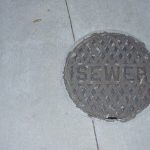A plumbing emergency is a serious issue with a home or building’s plumbing system that requires immediate attention. Common plumbing emergencies include burst pipes, gas leaks, backed up sewer lines, and flooding. These problems can cause major water damage, affect the ability to use water and sewer systems, or even pose safety hazards if gas leaks are involved. Acting quickly is crucial to prevent additional damage and restore normal plumbing function. There are some clear signs that indicate a plumbing problem has become an emergency. Burst pipes or flooding should be addressed right away to stop water from spreading. Strong gas odors suggest a dangerous gas leak, requiring immediate repair. Sewer backups that prevent sink, shower, or toilet use also warrant quick response. While minor issues like a leaky faucet can wait, homeowners should not hesitate to call a plumber for assistance if they encounter an escalated plumbing problem. A reliable professional can promptly assess the issue and take necessary steps to make repairs and get the plumbing system back in working order.
Burst or Leaking Pipes
A burst or leaking pipe is a severe plumbing emergency that can occur due to various factors, such as freezing temperatures, corrosion, or excessive water pressure. When a pipe bursts or leaks, it can result in significant water damage to your home’s structure and belongings. To mitigate the damage, it is crucial to locate the main water shutoff valve and promptly turn it off to stop the flow of water. This immediate action can help minimize the extent of water damage while you wait for a professional plumber to arrive and assess the situation. A timely response is vital to prevent further harm to your property and ensure the safety of your home. Additionally, consider using towels or buckets to collect excess water and prevent it from spreading further.
Sewage Backup: A sewage backup is one of the most severe plumbing emergencies, posing a substantial health hazard due to the presence of harmful bacteria and pathogens in sewage. This emergency often occurs when sewage flows into sinks, toilets, or drains within your home, resulting from sewer line blockages or septic system malfunctions. To protect your health and your property, it is imperative not to use any water fixtures when you suspect a sewage backup. Instead, contact a licensed plumber immediately to address the issue. A professional plumber can unclog the sewer line, disinfect affected areas, and ensure that your plumbing system is functioning safely to prevent contamination and further damage. Remember to avoid contact with the contaminated water and take necessary precautions to prevent the spread of harmful microorganisms.
No Running Water
Sudden and complete loss of running water throughout your home can disrupt daily life and necessitates swift attention. This issue can arise from a burst pipe, problems with the water main, or a malfunctioning water pump. To address this plumbing emergency, start by checking with your neighbors to determine if they are experiencing similar water supply issues. If the problem is isolated to your property, contact a plumber without delay to diagnose and resolve the issue. Prompt action is essential to restore your water supply and normalcy in your daily routines. In the meantime, consider using stored water for essential tasks such as flushing toilets or hygiene.
Water Heater Failure
A malfunctioning water heater can lead to discomfort, especially when it results in a lack of hot water for essential tasks like bathing and cleaning. Signs of water heater failure may include cold water when you expect hot water, unusual noises emanating from the heater, or visible leaks. In some cases, a leaking or ruptured water heater can also cause water damage. To address this emergency, reach out to a plumber for a thorough inspection and appropriate repair or replacement of the water heater. Timely action ensures the restoration of hot water and prevents further complications or damage to your home. While you wait for the plumber, consider using alternative heating methods for water, such as boiling water on the stove for necessary tasks.
Gas Leak
A gas leak is not only a plumbing emergency but also a critical safety hazard that demands immediate attention. If you detect the smell of gas or suspect a gas leak due to damage to the gas line or appliances, your first priority should be to evacuate the premises swiftly. Avoid creating any sparks or flames and, if possible, turn off the gas supply valve. Contact both your gas company and a licensed plumber to address the issue safely. Gas leaks can lead to fire or explosions if not handled properly, making it essential to exercise caution and seek professional help without delay. Do not attempt to locate the source of the leak yourself, as this can be extremely dangerous.
Faucet or Fixture Malfunction
While not as urgent as other plumbing emergencies, a malfunctioning faucet, toilet, or shower valve can result in water wastage and increased utility bills. Persistent leaks can also cause water damage over time, potentially impacting the structural integrity of your home. To prevent further complications and conserve water, promptly repair or replace the faulty fixture. A professional plumber can diagnose the issue and recommend the most suitable solution to ensure the fixture operates correctly, preventing water waste and damage. Be sure to check for any visible leaks around the fixture and address them promptly to prevent further damage.
Clogged Drains
Severe drain clogs can disrupt the normal operation of sinks, showers, or toilets, leading to backups and slow drainage. Attempting to clear a clog with chemical solutions may exacerbate the problem or cause damage to your pipes. When faced with a stubborn drain clog, it is best to contact a professional plumber who possesses the expertise and appropriate tools to safely and effectively clear the blockage. Their intervention ensures that your plumbing system functions correctly, preventing further inconvenience and potential damage. Avoid using the affected fixture until the clog is resolved, as continued use can worsen the blockage.
Frozen Pipes
In regions with cold climates, frozen pipes represent a common plumbing emergency. When pipes freeze, they can burst upon thawing, causing water damage to your home. If you suspect frozen pipes, act promptly by turning off the water supply to the affected area and opening faucets to relieve pressure. Then, contact a licensed plumber to safely thaw the pipes and inspect them for any damage. Additionally, consider insulating pipes in cold areas of your home to prevent future freezing incidents and ensure the uninterrupted flow of water during winter months. It is crucial to avoid using heat sources like open flames or heat guns to thaw pipes, as this can lead to accidents or pipe damage.
Flooding
Any sudden, uncontrolled water accumulation within your home, whether due to a malfunctioning sump pump or heavy rain, constitutes a plumbing emergency. Immediate action is necessary to address this situation. First, prioritize safety by checking for electrical hazards and turning off power if needed. Once your safety is ensured, contact a plumber to mitigate the flooding and identify the root cause. Whether the issue is related to your plumbing system or external factors like weather conditions, swift intervention is crucial to prevent extensive water damage and the potential growth of harmful molds and bacteria in damp environments. Use towels, mops, or a wet-dry vacuum to begin removing excess water while waiting for professional assistance.
Low Water Pressure
A sudden drop in water pressure can disrupt daily routines and may indicate an underlying plumbing issue. While not as urgent as other plumbing emergencies, it can still be a sign of a more significant problem within your plumbing system. Begin by checking with neighbors to determine if they are experiencing similar issues with their water pressure. If the problem appears to be isolated to your property, contact a plumber to diagnose and address the cause of the low water pressure. Possible causes range from pipe blockages to deteriorating pipes or even municipal water supply problems. Timely resolution ensures the restoration of adequate water pressure and helps prevent potential complications such as malfunctions in appliances that rely on sufficient water pressure for their operation. In the meantime, consider conserving water and adjusting your daily routines to accommodate the lower water pressure.
Conclusion
Plumbing emergencies encompass a range of critical situations that require immediate attention to protect your home, health, and safety. From burst pipes and sewage backups to gas leaks and flooding, these emergencies can lead to severe damage if not addressed promptly and appropriately. It is essential to familiarize yourself with the signs and actions needed for each plumbing emergency, such as shutting off the main water supply, evacuating in the case of a gas leak, or contacting a professional plumber for expert assistance. Timely responses to these emergencies can prevent extensive property damage, health hazards, and costly repairs. Regular maintenance and preventive measures, such as insulating pipes in cold climates or fixing minor leaks, can also help reduce the likelihood of encountering these emergencies. By staying informed and prepared, homeowners can better safeguard their homes and ensure the well-being of their families in the face of unexpected plumbing challenges.





